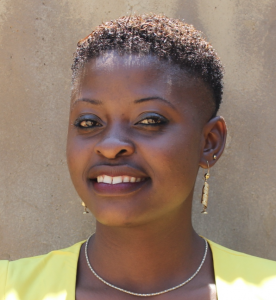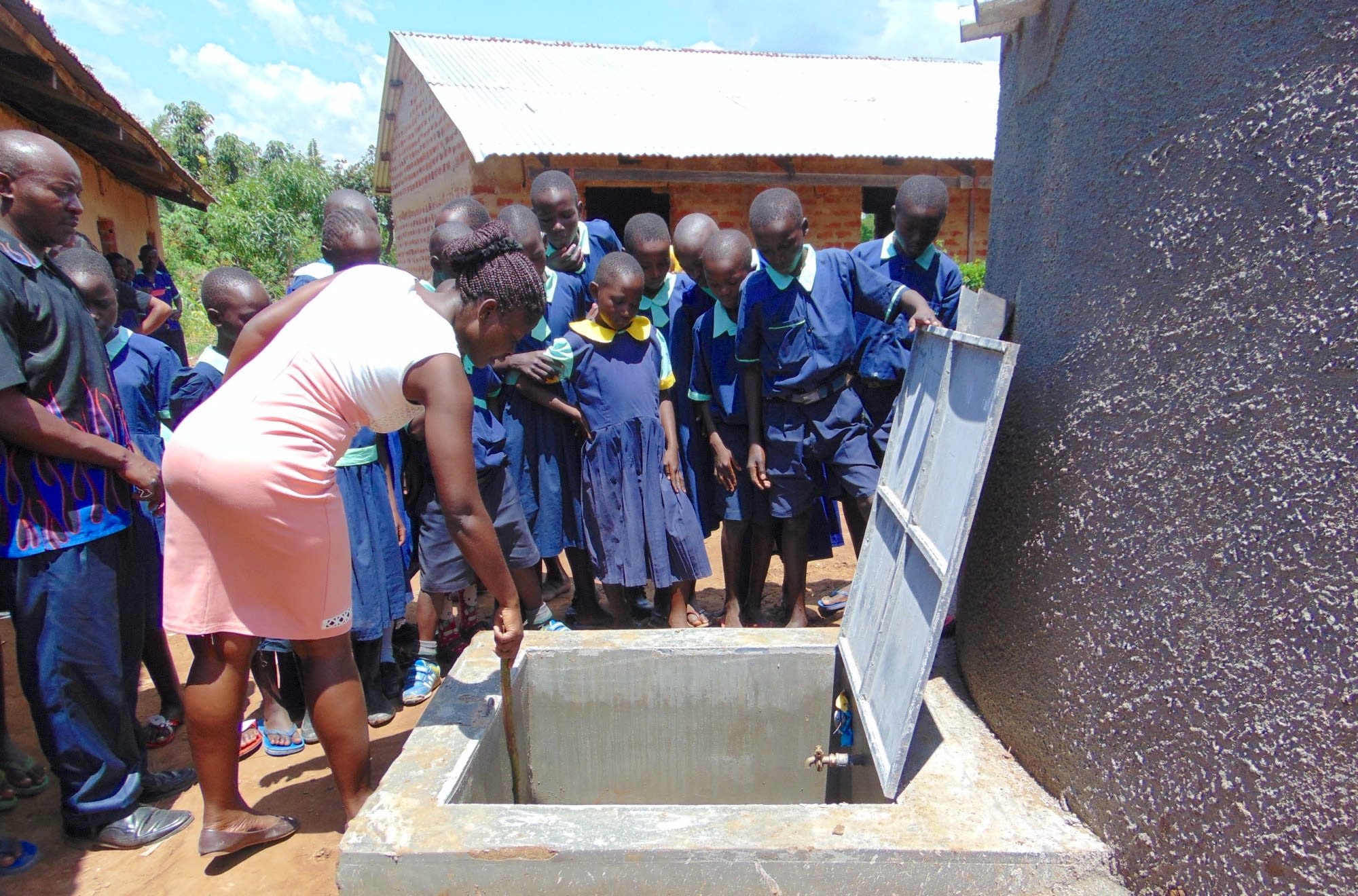Mukama Primary School was founded in 1995 by a local church that saw the need. Pupils used to walk 2 kilometers to get to the nearest school. They currently have 666 students enrolled.
The school is in the far end of Kakamega County, sharing the boundary with Bungoma County. The setting is rural with no shops nor schools around it. The area is very green as people farm as part of their daily income. This makes for a peaceful, conducive environment for academic learning.
A normal day for the pupils at this school begins early in the morning from their various homes. One pupil who was interviewed said she wakes up, washes her face, hands, and legs, brushes teeth, takes a cup of porridge and leaves for school. It takes her 45 minutes walking to school with her water container, books, and firewood. Upon arrival at school, she puts her books in the classroom and goes back out to clean the toilet - for it's her class' week for toilet duty. Morning classes go until lunch when many pupils go home and come back while others eat it at school. The afternoon classes continue until game time - the "time we practice for the extracurricular activities like music, which is my favorite, while others clean the classes thus marking the end of the day."
That young student has to carry a container of water each morning because there is unreliable, inadequate water on school grounds.
The school was hopeful when they got connected to a piped water system, but the water has been strictly rationed since the beginning. Water only flows from the tap once each week for a three-hour window. The school has four plastic filters that they quickly fill with the tap water, but that's all they have for storage. These only last for a day, and then the students are without water until the next week when pipes are back on.
When a nearby community member saw the dire situation, he offered that students can use water from the hole he dug in his back yard. There is a bucket tied to a rope, and students lower this down and raise it back up with water. This water is certainly not clean, and students are in danger of falling in each time they draw water from the hole.
Water scarcity makes the normal functioning of the school very difficult. The lunch program often falls through, and pupils cannot concentrate in class when they're thirsty.
What we can do:
Training
Training on good hygiene habits will be held for two days. The facilitator will use PHAST (participatory hygiene and sanitation transformation), ABCD (asset-based community development), CTC (child to child), lectures, group discussions, and handouts to teach health topics and ways to promote good practices within the school. The CTC method will prepare students to lead other students into healthy habits, as well as kickstart a CTC club for the school.
Handwashing Stations
Two handwashing stations will be delivered to the school, and the CTC club will fill them with water on a daily basis and make sure there is always a cleaning agent such as soap or ash.
VIP Latrines
The toilets are in very pathetic condition, for some are made of iron-corrugated sheets. The floors are cemented but they have worn out. Most of the toilets do not have doors and this is unpleasant for the girls who highly value their privacy. There are only three latrines for the boys and five for the girls.
Two triple-door latrines will be constructed with local materials that the school will help gather. Three doors will serve the girls while the other three serve the boys. And with a new source of water on school grounds, students and staff should have enough to keep these new latrines clean.
Rainwater Catchment Tank
A 50,000-liter rainwater catchment tank will help alleviate the water crisis at this school. The school will also help gather the needed materials such as sand, rocks, and water from the spring for mixing cement. Once finished, this tank can begin catching rainfall that will be used by the school’s students and staff.
The tank could also be connected to the piped water system so that when it's working, the school is able to store as much water as possible to make it through the service gaps.
We and the school strongly believe that with this assistance, standards will significantly improve. These higher standards will translate to better academic performance!

 Rainwater Catchment
Rainwater Catchment
 Rehabilitation Project
Rehabilitation Project


































